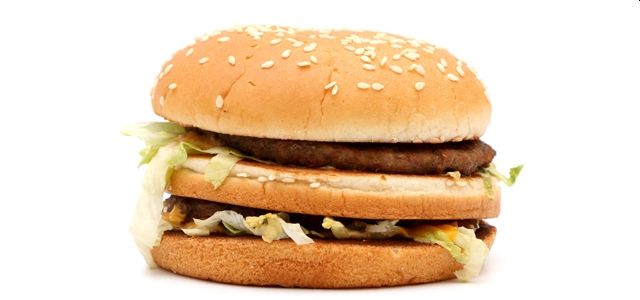
McDonald's is once more the talk of the town with one of its most famous sandwiches, the BIG MAC.
The news, however, does not concern a new burger recipe, but rather a ruling on its trademark.
On June 5, 2024, the General Court of the European Union ruled in case T-58/23 involving the European Union trademark "BIG MAC" filed by the well-known American company in 1996, holding that there was no proof of genuine use of the mark in connection with some of the goods and services, including chicken sandwiches and foods made from poultry.
The dispute – which began a few years ago – involves on the one hand the American multinational McDonald's International Property Company, Ltd. and on the other hand the Irish fast food chain Supermac's (Holdings) Ltd.
In 2014, Supermac's filed its trademark "SUPERMAC'S" in the European Union, covering, among other products, hamburgers. The fact did not go unnoticed by McDonald's – usually proactive in its actions to protect its intellectual property rights – which promptly filed an opposition to the registration of the trademark SUPERMAC'S on the grounds of a likelihood of confusion with the its known trademark "BIG MAC". Hence the legal battle. In 2017, Supermac's filed an action before the European Union Intellectual Property Office (EUIPO) for revocation for non-use against the 1996 registration for "BIG MAC" upon which McDonald's opposition had been based, claiming that it had not been put to genuine use for the goods and services designated.
McDonald's was therefore required to prove – under penalty of revocation of its trademark – "genuine" use of the sign in the 5 years preceding the filing of the action for revocation, by producing evidentiary material in accordance with the Office's standards.
Despite the amount of evidence of use produced, the EUIPO's decision upheld the application for revocation, finding that the proof of use of the trademark "BIG MAC" was insufficient and entirely revoking the trademark "BIG MAC" (see Cancellation No 14 788 C)
McDonald's filed an appeal against the decision and the Board of Appeal partially upheld the appeal , and annulled the Cancellation Division decision to the extent that it had revoked for the following goods and services: "Foods prepared from meat and poultry products, meat sandwiches, chicken sandwiches" in class 29, "Edible sandwiches, meat sandwiches, chicken sandwiches" in class 30 and Services rendered or associated with operating restaurants and other establishments or facilities engaged in providing food and drink prepared for consumption and for drive- through facilities; preparation of carry-out foods" in class 42 (see case R 543/2019-4).
Supermac's responded by filing an appeal before the General Court of the European Union, and the General Court ruled on the case, altering the Board of Appeal's decision and further limiting the protection conferred on the trademark "BIG MAC", having found that there was no proof of a use of the trademark for chicken sandwiches, foods made from poultry or services relating to restaurants and the provision of food and drink for on site, drive-through and take-away consumption.
According to the General Court, in fact, the evidence provided was not sufficient to prove genuine use of the trademark in relation to any other goods and services, as it was deficient with regard to the period and volume of sales, and the intensity and frequency of use of the trademark.
The clamour caused by this judgment is undoubtedly linked to the notoriety of the trademark "BIG MAC" for which one would expect use would be easy to prove by virtue of its wide diffusion and recognisability by the public; however, this condition in no way disregards the need to prove "genuine" use for all the goods designated by the trademark.
This leads to an important reflection on the need – with reference to any trademark, even a well-known one – to pay attention to the evidence at one's disposal with reference to any goods or services designated by that trademark.
In the case at issue McDonald proffered large amount of evidence which however referred only to certain types of products, and the General Court did not consider such evidence sufficient to prove use on different products and services.
This decision underlines the need for trademark owners not to neglect the importance of periodically collecting proof of the use of their trademark, perhaps creating an internal archive where they can collect and store material that is useful for this purpose.
The content of this article is intended to provide a general guide to the subject matter. Specialist advice should be sought about your specific circumstances.
[View Source]

